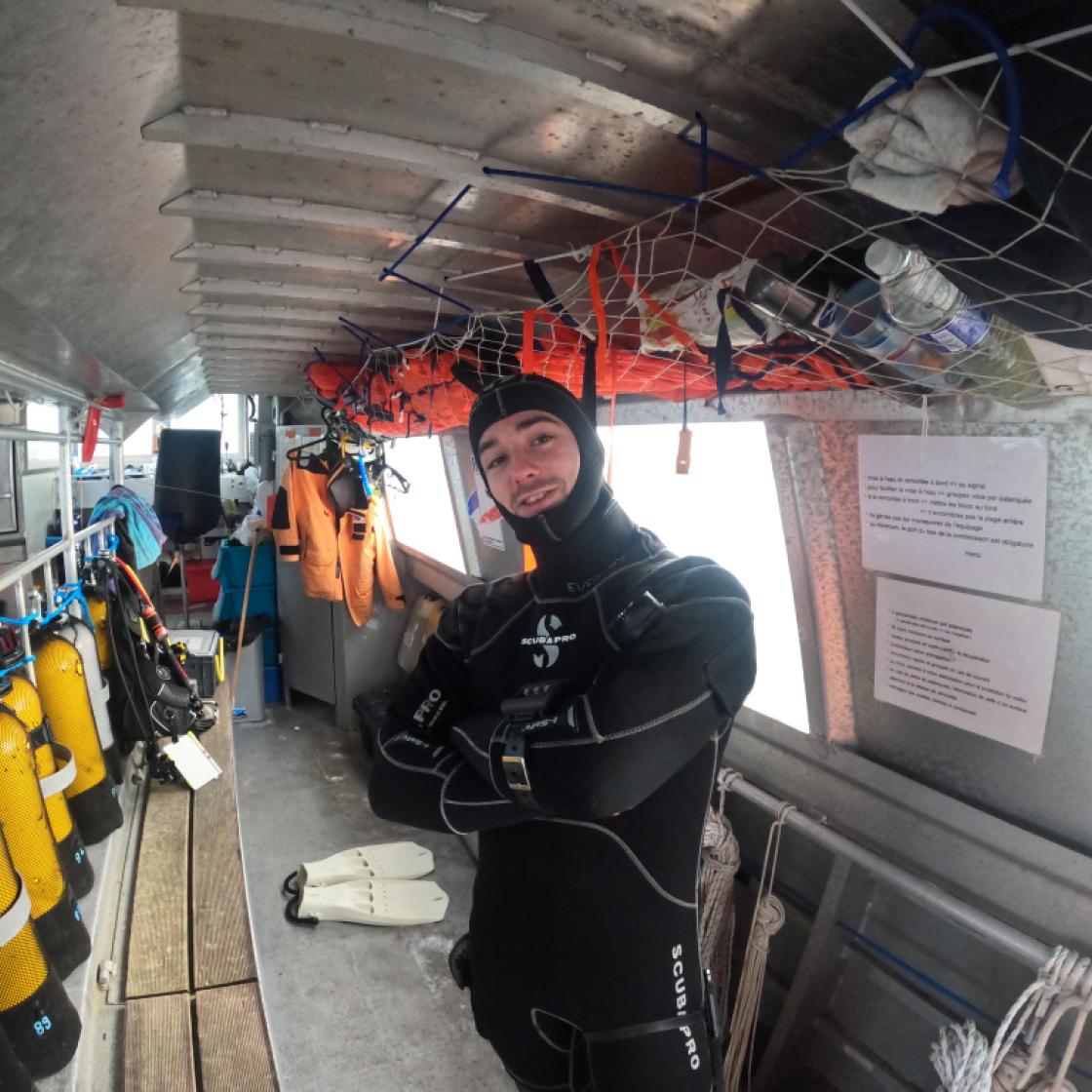
Ancien membre du laboratoire
General topics
The role of marine infrastructure settlement on the production of coastal ecosystems in the Channel
The English Channel is subject to increasing human activities, in particular with the development of marine renewable energies leading to an increase in port areas and which, associated with the extraction of aggregates, fishing, aquaculture, tourism and maritime transport, accentuates the already high level of pressure in the Channel.
This accumulation of activities is exerting increasing pressure on the Channel marine ecosystem and causing changes to marine habitats that affect the biological diversity, ecological quality and health of marine habitats, which can potentially alter the services provided to society by the Channel ecosystem by reducing natural resources. On the other hand, the installation of new infrastructure, such as wind farms, can provide new marine habitats and modify the biodiversity and functioning of coastal ecosystems. Reef effects can increase the species richness and biomass of newly installed offshore structures.
My study is part of a European project (Interreg Va MARINEFF) that proposes to allow new marine infrastructures to provide benefits as artificial habitats on ecosystem functioning and biological diversity. My work focuses on the colonisation of marine infrastructures with the aim of characterising the establishment of communities and major ecological functions, in particular the production function. The aim is to understand the functional diversity and its evolution during the colonisation process. The functionality of species is assessed by analysing life history traits. Thus, we characterise the redundancies and complementarities of functions and their dynamics over time and test different functional diversity indices. The work is being carried out in the Channel on different types of infrastructure made of different materials, on artificial reefs that have been immersed for 5 years and on natural habitats. The monitoring is mainly carried out underwater, with the monitoring being used in the laboratory.
We are interested in the communities of primary producers and the primary production function of the ecosystem. Photosynthesis measurements using different techniques (benthic bell, PAM, ppCO2, etc.) will allow us to carry out eco-physiological measurements indicative of adaptations and acclimatizations according to the niches and to estimate the primary production balances of the system in order to quantify trophic transfers. In addition, we will carry out measurements of biodiversity, abundance and biomass of the main trophic groups. Finally, isotopic analyses will be used to determine the trophic level of organisms, from primary producers to top predators.
This study will enable the acquisition of new knowledge on the functioning of hard substrate habitats and to explore, in particular, the "biodiversity/productivity" relationship during the colonisation process; it will also enable the implementation of innovative approaches to characterise the functioning of this type of habitat in the context of the development of numerous marine infrastructures present in the Channel and in Europe. Finally, it will lead to the implementation of protocols and indicators that are required by the project partners involved in the construction and management of these structures, in order to assess the negative or positive impacts of such developments at sea.
The English Channel is subject to increasing human activities, in particular with the development of marine renewable energies leading to an increase in port areas and which, associated with the extraction of aggregates, fishing, aquaculture, tourism and maritime transport, accentuates the already high level of pressure in the Channel.
This accumulation of activities is exerting increasing pressure on the Channel marine ecosystem and causing changes to marine habitats that affect the biological diversity, ecological quality and health of marine habitats, which can potentially alter the services provided to society by the Channel ecosystem by reducing natural resources. On the other hand, the installation of new infrastructure, such as wind farms, can provide new marine habitats and modify the biodiversity and functioning of coastal ecosystems. Reef effects can increase the species richness and biomass of newly installed offshore structures.
My study is part of a European project (Interreg Va MARINEFF) that proposes to allow new marine infrastructures to provide benefits as artificial habitats on ecosystem functioning and biological diversity. My work focuses on the colonisation of marine infrastructures with the aim of characterising the establishment of communities and major ecological functions, in particular the production function. The aim is to understand the functional diversity and its evolution during the colonisation process. The functionality of species is assessed by analysing life history traits. Thus, we characterise the redundancies and complementarities of functions and their dynamics over time and test different functional diversity indices. The work is being carried out in the Channel on different types of infrastructure made of different materials, on artificial reefs that have been immersed for 5 years and on natural habitats. The monitoring is mainly carried out underwater, with the monitoring being used in the laboratory.
We are interested in the communities of primary producers and the primary production function of the ecosystem. Photosynthesis measurements using different techniques (benthic bell, PAM, ppCO2, etc.) will allow us to carry out eco-physiological measurements indicative of adaptations and acclimatizations according to the niches and to estimate the primary production balances of the system in order to quantify trophic transfers. In addition, we will carry out measurements of biodiversity, abundance and biomass of the main trophic groups. Finally, isotopic analyses will be used to determine the trophic level of organisms, from primary producers to top predators.
This study will enable the acquisition of new knowledge on the functioning of hard substrate habitats and to explore, in particular, the "biodiversity/productivity" relationship during the colonisation process; it will also enable the implementation of innovative approaches to characterise the functioning of this type of habitat in the context of the development of numerous marine infrastructures present in the Channel and in Europe. Finally, it will lead to the implementation of protocols and indicators that are required by the project partners involved in the construction and management of these structures, in order to assess the negative or positive impacts of such developments at sea.

